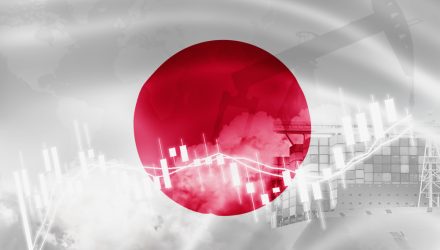It would be an understatement to say that 2022 has been a wild year in the markets. From Russia’s invasion of Ukraine to lingering supply issues and rising rates, some of the most popular sectors from 2021 took some big hits. Amid those ups and downs, some potent equity slices stood out this year, with funds focusing on dividends and Japan is among those themes worth considering in ETFs for 2023.
Dividends have been popular in the latter half of the year thanks to their ability to reinforce equities portfolios with current income, with the vast majority of dividend ETFs seeing net positive YTD inflows, according to VettaFi.
Japan, meanwhile, has benefited from investors’ concerns about China’s zero-COVID policy, and from the Japanese government’s proactive efforts to boost the economy with a stimulus spending plan and by reopening to tourists.
With as much uncertainty, if not more, looming for markets looking at 2023, the right dividend or Japan-focused ETF could be a big boost for investors’ portfolios. Three candidates that might fit the bill include the WisdomTree US High Dividend Fund (DHS), the WisdomTree Japan Hedged Equity Fund (DXJ), and the WisdomTree Japan Hedged SmallCap Equity Fund (DXJS), from the modern alpha-focused managers at WisdomTree.
DHS tracks the WisdomTree U.S. High Dividend Index and charges investors a 38 basis point fee. The index includes dividend-paying, large-cap companies with value characteristics, which could be an interesting play as certain growthier offerings continue to struggle with the new rising rate regime.
The index includes about 330 holdings with a broad exposure to dividend companies, offering a 3.8% annual dividend yield, at least 100 basis points greater than the ETF Database Category Average or the FactSet Segment Average. DHS has taken in $22 million in net inflows over the last five days, returning 4.8% over the last month, according to VettaFi.
For the two Japan-focused ETFs, DXJ tracks the WisdomTree Japan Hedged Equity UCITS Index, while its small-cap sibling DXJS tracks the WisdomTree Japan Hedged SmallCap Equity Index. DXJ offers broad exposure to the Japanese equity market but hedges out currency fluctuations, potentially benefitting from weakness in the yen. DXJ charges 48 basis points, while DXJS charges 58.
DXJ has added $20 million in one month of net inflows, outperforming both the ETF Database Category Average and the FactSet Segment Average over three months. DXJS meanwhile returned 1% over that time, applying the same currency hedge but targeting small caps specifically.
Finding the right ETFs for 2023 is front and center for investors right now, with so much of the market consensus up in the air after a turbulent 2022. For those investors who believe that dividends and Japan-focused strategies will carry their late 2022 success into the new year, the trio of DHS, DXJ, and DXJS may be worth considering over the next few weeks.
For more news, information, and analysis, visit the Modern Alpha Channel.








